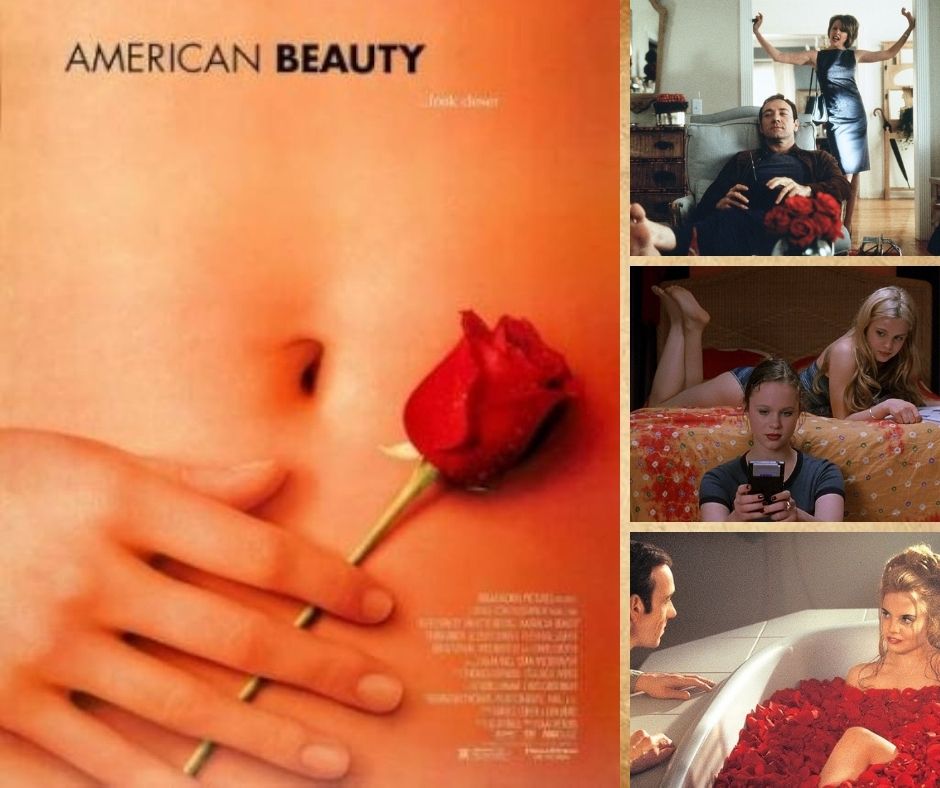American Beauty (1999)

American Beauty (1999), directed by Sam Mendes and written by Alan Ball, is a darkly comedic and visually striking drama that explores the disillusionment, complexity, and hypocrisy of suburban life. With a stellar cast led by Kevin Spacey, Annette Bening, Thora Birch, and Mena Suvari, the film delves into themes of identity, repression, longing, and the search for meaning in the midst of a seemingly perfect, yet deeply flawed, society.
The film centers on Lester Burnham (Kevin Spacey), a middle-aged man who feels trapped in his monotonous suburban life. Lester is a disillusioned and emotionally distant husband to his controlling and status-obsessed wife, Carolyn (Annette Bening), and an uninvolved father to his rebellious teenage daughter, Jane (Thora Birch). Lester’s life is upended when he begins an affair with Angela (Mena Suvari), the attractive and seemingly carefree friend of his daughter, leading him to reevaluate his life and priorities.
As Lester begins to rebel against societal expectations, he embarks on a personal journey of liberation, attempting to reclaim his lost youth and desires. Meanwhile, his wife Carolyn is similarly struggling with her own identity, desperately clinging to the illusion of success and perfection, even as her world begins to unravel. Jane, Lester’s daughter, also navigates the complicated terrain of adolescence, caught between her own insecurities and the oppressive atmosphere of her family.
The film takes a sharp, often satirical look at the American dream, revealing the underlying dysfunction and emptiness that lies beneath the surface of outward success. Its exploration of the fragility of personal relationships and the conflict between external appearances and internal truth resonates as a critique of contemporary American life.
American Beauty is visually memorable, often using symbolism and lush cinematography to accentuate the themes of desire, decay, and transformation. The infamous shot of a plastic bag floating in the wind is one of many powerful visual metaphors that carry significant weight in the film’s broader message about beauty and the impermanence of life.
The film received widespread acclaim, earning several prestigious awards, including five Academy Awards, including Best Picture, Best Director for Sam Mendes, and Best Actor for Kevin Spacey. It’s a film that continues to resonate for its exploration of personal crisis, self-destruction, and the search for happiness, offering a pointed commentary on the complexity of human relationships and the illusion of the American ideal.